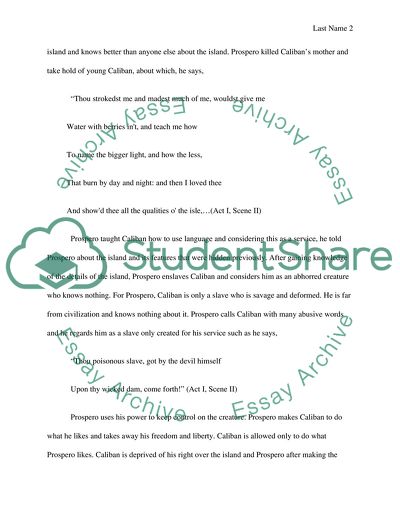Cite this document
(“Shakespeare's The Tempest Essay Example | Topics and Well Written Essays - 2000 words”, n.d.)
Retrieved from https://studentshare.org/english/1609468-shakespeares-the-tempest
Retrieved from https://studentshare.org/english/1609468-shakespeares-the-tempest
(Shakespeare'S The Tempest Essay Example | Topics and Well Written Essays - 2000 Words)
https://studentshare.org/english/1609468-shakespeares-the-tempest.
https://studentshare.org/english/1609468-shakespeares-the-tempest.
“Shakespeare'S The Tempest Essay Example | Topics and Well Written Essays - 2000 Words”, n.d. https://studentshare.org/english/1609468-shakespeares-the-tempest.


